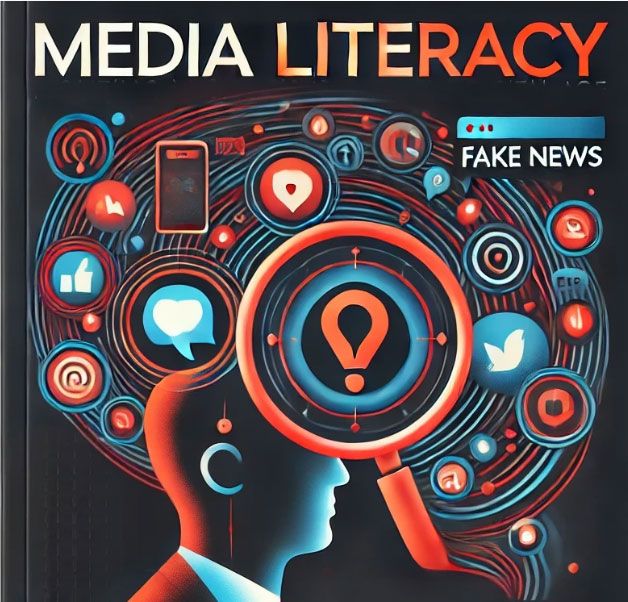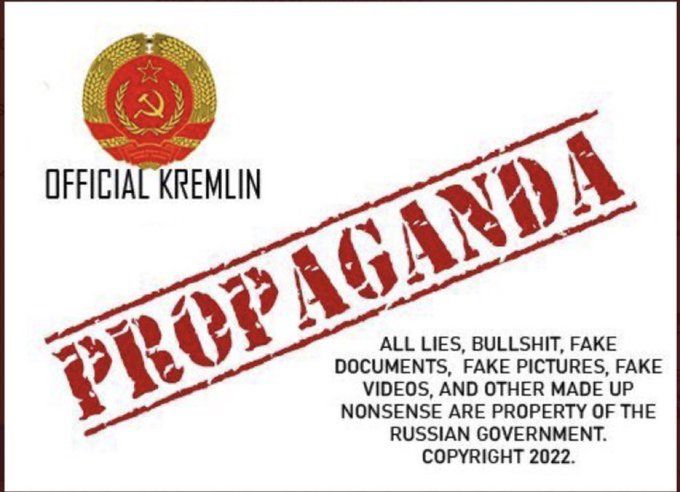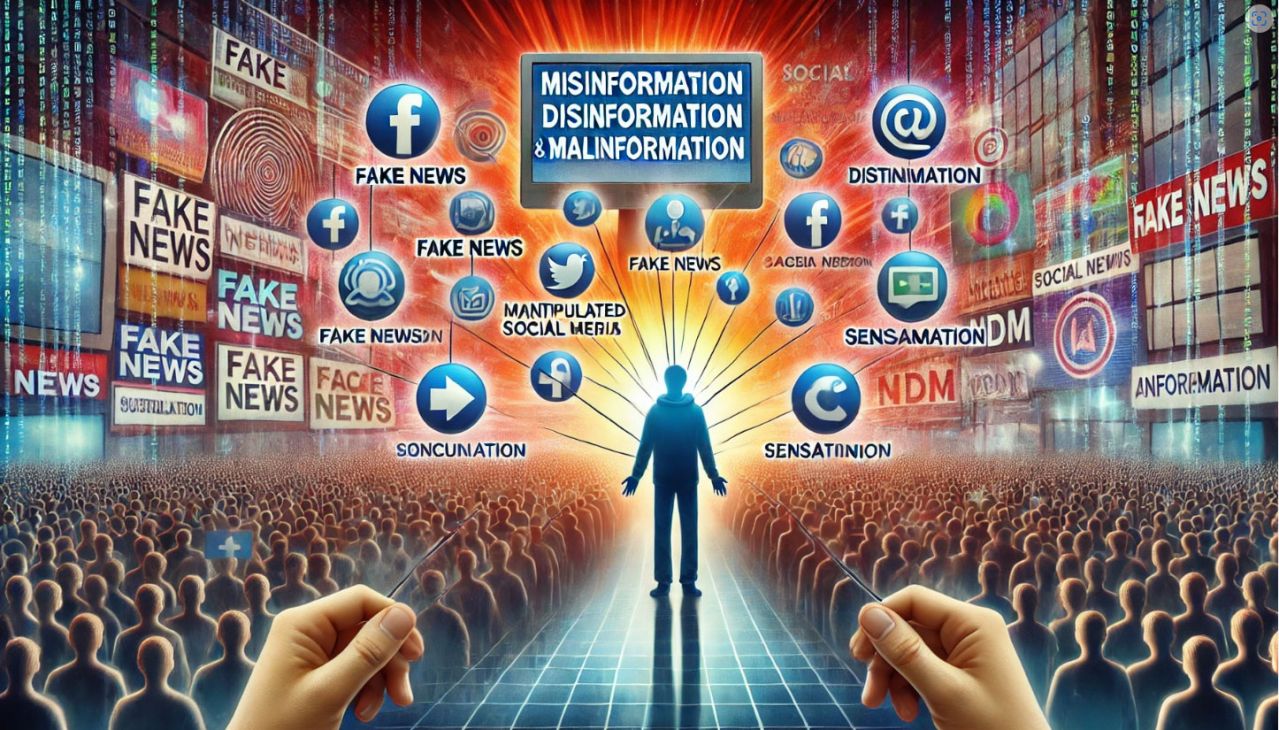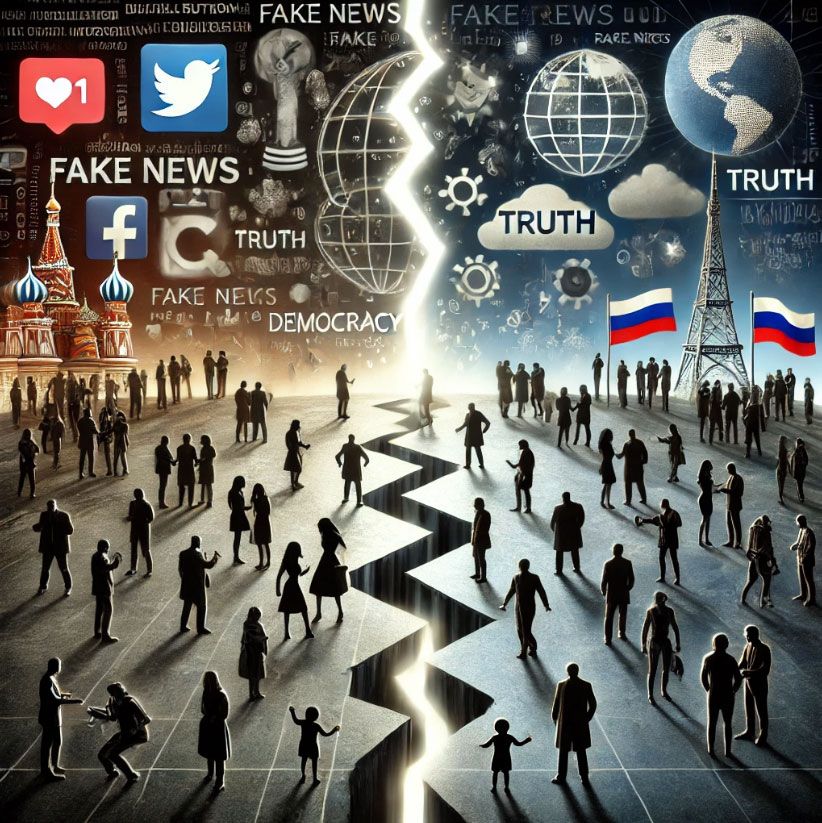Why Media Literacy Is More Important Than Ever
- The Rise of Disinformation
- Disinformation isn’t just about "fake news." It’s a deliberate strategy to manipulate public opinion, undermine trust, and destabilize societies.
- For example, during the 2016 U.S. election, Russian troll farms used fake Facebook ads and divisive memes to sow discord among Americans (source).
How It Impacts You- Your Wallet: A recent scam promised people access to high-yield investment opportunities through a fake cryptocurrency.
- Victims like Alice Thompson, a 52-year-old teacher from Ohio, were drawn in by ads featuring fabricated celebrity endorsements. "I thought it was legit because I saw [celebrity] promoting it," Alice explained. She lost $25,000 in savings before realizing it was a scam (source).
- Your Safety: During the COVID-19 pandemic, false claims about miracle cures like drinking bleach or using ivermectin as a treatment led to hospitalizations and even deaths.
- Stories like that of Luis Hernandez, a father of three who tried one of these unproven remedies, highlight the dangers. "I didn’t know it could harm me," he said after his hospitalization. These claims spread largely through social media platforms (source).
- Your Relationships: Families have been torn apart over polarizing misinformation.
- Jessica Rivera, a mother of two from Texas, said, "I stopped talking to my brother because he believed all these crazy election conspiracies. Every conversation turned into a fight." Research shows that one in five Americans reported strained relationships due to disagreements over false information (source).
- Your Voice: In countries like Myanmar, disinformation campaigns have been linked to real-world violence.
- For instance, fake news on Facebook fueled hate speech against the Rohingya minority, leading to violent attacks (source).
- A New Era of Manipulation
- Deepfakes: A recent deepfake video of Ukrainian President Volodymyr Zelenskyy urging his soldiers to surrender spread briefly on social media before being debunked.
- "It shook my confidence," admitted Andriy, a 34-year-old Ukrainian citizen. "Even though I knew it was fake, it made me question what I was seeing." Deepfakes undermine trust in leadership and institutions (source).
- Algorithms: Social media platforms like YouTube have been criticized for recommending radicalizing content. Alex, a 20-year-old college student, shared, "I started watching fitness videos, but soon my feed was full of conspiracy theories about government mind control."
- Algorithms can lead users down dangerous rabbit holes of misinformation (source).
What Does Media Literacy Look Like in the Future?
Media literacy today goes beyond just spotting fake news. It requires understanding how the entire information ecosystem works.
Here are some key components:
1. Critical Thinking Skills
- Ask the Right Questions: Where is this information coming from? For instance, when a tweet claiming "NASA confirms Earth will experience 15 days of darkness" went viral, a quick search on NASA’s official site revealed no such statement. Verifying the source is key.
- Look for Red Flags: Be wary of emotionally charged language or sensational claims. For example, headlines like "Scientists discover secret to immortality" are designed to grab attention but rarely hold up under scrutiny.
2. Emotional Awareness
- Recognize Emotional Triggers: In 2020, a manipulated video of House Speaker Nancy Pelosi appearing drunk went viral. It played on viewers' biases and emotions to misrepresent her (source). Pausing to question your reaction can prevent knee-jerk sharing.
3. Verifying Sources
- Use Fact-Checking Tools: In 2021, a viral claim circulated that the U.S. was sending "thousands of troops to Ukraine." Fact-checking websites like Snopes quickly debunked this as misinformation.
- Cross-Check Information: Don’t rely on just one platform. For example, if a claim about climate change trends only appears on fringe websites, it’s worth investigating further.
4. Understanding Algorithms
- Know How Platforms Work: Platforms like TikTok and Instagram prioritize content that’s engaging and often polarizing. Users should understand that "virality" doesn’t equate to credibility.
- Diversify Your Information Sources: After the 2020 U.S. elections, many users found themselves in "echo chambers," where their feeds only reinforced existing beliefs. Following diverse outlets can help break that cycle.
Personal Stories: The Human Side of Misinformation
To understand the impact of misinformation, it helps to look at real stories from everyday people:
- A Family Torn Apart by Vaccine Misinformation
- Jessica, a mother of two, believed false claims she read online about vaccines causing infertility. When her teenage daughter wanted to get vaccinated against COVID-19, it caused a rift in their family. "I thought I was protecting her, but I didn’t realize I’d fallen for lies," Jessica later admitted after speaking with a healthcare professional and learning the truth.
- The Cryptocurrency Scam That Cost a Life Savings
- After seeing ads for a “revolutionary new cryptocurrency,” Marcus invested his retirement savings into what he thought was a once-in-a-lifetime opportunity. The platform, advertised with fake celebrity endorsements, turned out to be a scam. Marcus now shares his story to warn others: “If it seems too good to be true, it probably is.”
- How Deepfakes Hurt a Reputation
- Sarah, a small business owner, discovered a deepfake video falsely showing her making offensive comments. Although the video was quickly debunked, the damage to her reputation lingered. She had to spend months rebuilding trust with her customers.
- Hate Speech Leading to Real-World Violence
- A community in India experienced unrest after fake WhatsApp messages spread false claims about child kidnappers in the area. The rumors led to mob violence, leaving several innocent people injured. Authorities now run public awareness campaigns to combat such misinformation.
Innovations Shaping Media Literacy
As disinformation evolves, so do the tools and strategies to combat it. Here are some updated and exciting innovations shaping the future of media literacy:
1. Gamified Learning
-
iReporter by BBC: This interactive game places users in the role of a journalist, challenging them to identify credible information and avoid falling for fake news. It offers a practical approach to understanding the challenges of news verification. Note: This game is no longer available on BBC platforms, but similar resources exist through educational media literacy initiatives..
2. Augmented Reality (AR) Simulations
- Reality Defender: An AR tool that helps users detect manipulated media by overlaying analysis results directly onto the content, providing real-time insights into potential disinformation (source).
3. AI-Powered Fact-Checking
- Factiverse: An AI-driven platform that assists in identifying disinformation by analyzing content and pointing users toward credible sources. It offers a database called FactiSearch for in-depth research (source).
- Google Fact-Check Explorer: This tool allows users to search a database of fact-checked claims to cross-reference information (source).
4. Deepfake Detection Software
- Sensity AI: A leading platform utilizing advanced computer vision and deep learning to identify manipulated media, including deepfakes. It is widely used for social media monitoring and live video streams (source).
- Deepware Scanner: A real-time deepfake detection tool designed to help users identify manipulated videos with ease (source).
5. Browser Extensions and Verification Tools
- Fake News Debunker by InVID & WeVerify: A browser extension offering a suite of tools to verify and analyze images and videos, commonly used by journalists (source).
- NewsGuard: A trusted extension that provides "nutrition labels" for news websites, rating their credibility and transparency (source).
By integrating these tools into daily routines, individuals can better navigate the digital landscape, identifying disinformation before it influences their decisions.
The combination of technology and critical thinking is essential in building a future where truth prevails over manipulation.
How You Can Protect Yourself Right Now
You don’t have to wait for future tools to start improving your media literacy.
Here are some simple steps you can take today:
- Pause Before Sharing: Ask yourself: Is this true? Does it seem designed to provoke an emotional reaction? For example, stories about "miracle cures" for chronic illnesses are often scams.
- Fact-Check Claims: Use tools like Snopes, FactCheck.org, or Google’s reverse image search to verify images and stories.
- Educate Yourself and Others: Share what you learn with friends and family. For instance, explain how "clickbait" works and why it’s important to verify headlines before believing them.
- Support Media Literacy Programs: Advocate for media literacy education in schools and workplaces. The more people understand how to evaluate information, the harder it becomes for disinformation to spread.
A Call to Action: Shaping a Future of Informed Citizens
Disinformation thrives on division, mistrust, and inaction. It feeds on our emotional reactions, our biases, and the overwhelming pace of modern life.
But media literacy—the ability to think critically about the information we encounter—gives us the tools to fight back.
Building a future where disinformation holds less power isn’t just the responsibility of governments or tech companies.
It starts with you:
- Pause Before You Share: The next time you see a shocking headline or an emotional video, take a moment to question its authenticity. Who benefits from this? Is it supported by credible sources?
- Educate and Empower Others: Talk to friends and family about the importance of verifying information. Share resources like Snopes or FactCheck.org to help them navigate the digital landscape.
- Support Media Literacy Programs: Advocate for better education in schools and workplaces that teaches people to identify fake news, understand algorithms, and resist emotional manipulation online.
- Engage with Diverse Sources: Step outside of your information bubble. Follow credible outlets with differing viewpoints to get a fuller picture of the world.
Imagine a world where misinformation doesn’t divide us, but truth brings us together.
Media literacy is the bridge to that future—a future where people have the tools to make informed decisions, rebuild trust in institutions, and create stronger communities.
It’s a challenge, but it’s one worth tackling.
Together, we can shape a more informed, resilient world—one click, share, and conversation at a time.
Further Reading and Resources:
- NewsGuard: A browser extension that rates the credibility of news sources.
- Checkology: An interactive platform for learning media literacy skills.
- Disinformation Index: Research and tools for understanding disinformation risks.
















